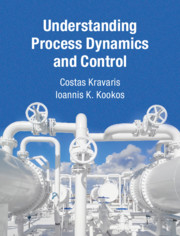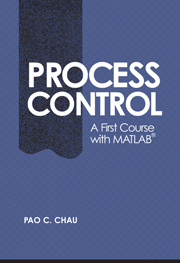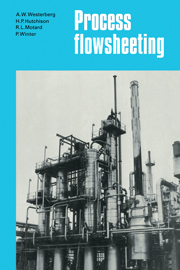Understanding Process Dynamics and Control
Presenting a fresh look at process control, this new text demonstrates state-space approach shown in parallel with the traditional approach to explain the strategies used in industry today. Modern time-domain and traditional transform-domain methods are integrated throughout and explain the advantages and limitations of each approach; the fundamental theoretical concepts and methods of process control are applied to practical problems. To ensure understanding of the mathematical calculations involved, MATLAB® is included for numeric calculations and MAPLE for symbolic calculations, with the math behind every method carefully explained so that students develop a clear understanding of how and why the software tools work. Written for a one-semester course with optional advanced-level material, features include solved examples, cases that include a number of chemical reactor examples, chapter summaries, key terms, and concepts, as well as over 240 end-of-chapter problems, focused computational exercises and solutions for instructors.
- Time domain (state-space) tools are developed in parallel with Laplace domain tools so that students better understand the concepts
- The software tools MATLAB® and MAPLE are introduced to provide a better understanding of calculations, both numeric and symbolic
- All mathematical proofs are presented in a step-by-step manner to guide the student towards a firm grasp of problem solving
- Cases, worked examples and over 240 problems are included throughout the text
Reviews & endorsements
‘Provides a fresh perspective through the integrated coverage of modern state-space and traditional transfer function approaches. The mathematical derivations are detailed and accessible, aiding clear understanding of the basic as well as the more advanced topics.’ Prodromos Daoutidis, University of Minnesota
‘Breaking new ground in the crowded field of process control textbooks, this book provides the foundation for teaching a modern undergraduate process control course in the twenty-first century. It is exceptionally well written and organized, and includes numerous examples, making it a must-have for all process control researchers, students and engineers.’ Panagiotis D. Christofides, University of California, Los Angeles
Product details
June 2021Adobe eBook Reader
9781009038096
0 pages
This ISBN is for an eBook version which is distributed on our behalf by a third party.
Table of Contents
- Contents
- Preface
- 1. Introduction
- 2. Dynamic Models for Chemical Process Systems
- 3. First Order Systems
- 4. Connections of First Order Systems
- 5. Second Order Systems
- 6. Linear Higher Order Systems
- 7. Eigenvalue Analysis – Asymptotic Stability
- 8. Transfer Function Analysis of the Input/Output Behavior
- 9. Frequency Response
- 10. The Feedback Control System
- 11. Block Diagram Reduction and Transient Response Calculation in a Feedback Control System
- 12. Steady-State and Stability Analysis of the Closed Loop System
- 13. State Space Description and Analysis of the Closed Loop System
- 14. Systems with Dead Time
- 15. Parametric Analysis of Closed Loop Dynamics – Root Locus Diagrams
- 16. Optimal Selection of Controller Parameters
- 17. Bode and Nyquist Stability Criteria – Gain and Phase Margins
- 18. Multiple-Input-Multiple-Output Systems
- 19. Synthesis of Model-Based Feedback Controllers
- 20. Cascade, Ratio and Feedforward Control
- Appendix A
- Appendix B.




